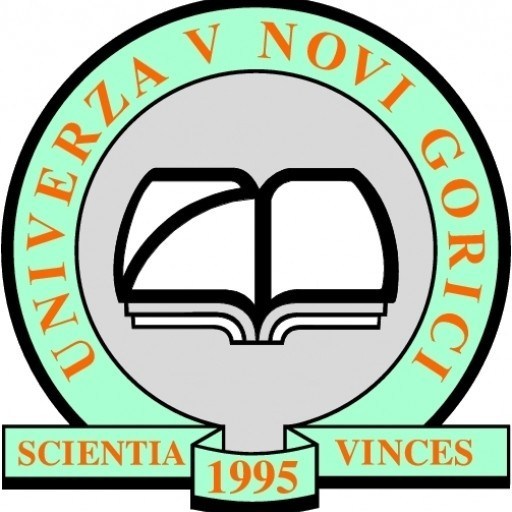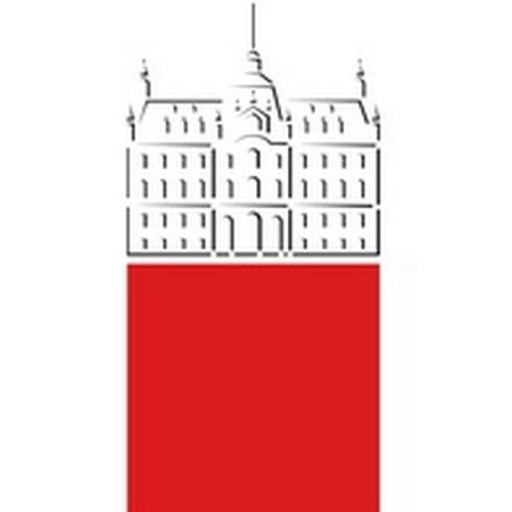Photos of university / #univerza.v.novi.gorici
Economics and Techniques for the Conservation of the Architectural and Environmental Heritage is a comprehensive master's program offered by the University of Nova Gorica, designed to equip students with the skills and knowledge necessary to preserve and manage valuable cultural and environmental assets. This interdisciplinary program combines principles of economics, heritage conservation, architecture, and environmental science to prepare graduates for careers in heritage management, conservation planning, and sustainable development. Throughout the course, students engage in a range of academic disciplines, including historical preservation methods, architectural techniques, environmental assessment, and economic analysis to understand the complexities involved in conserving structures and landscapes of cultural significance. The program emphasizes practical skills through workshops, field surveys, and internships, enabling students to apply theoretical knowledge to real-world projects. Students learn about the legal and institutional frameworks governing heritage conservation at local, national, and European levels, gaining insights into policy formulation and implementation. The curriculum also explores innovative conservation technologies, sustainable development strategies, and the socio-economic impacts of preservation activities. Graduates of this program will be prepared to work in multidisciplinary teams addressing challenges such as climate change, urban development, and tourism management while ensuring the protection and sustainable use of architectural and environmental heritage. The University of Nova Gorica's modern facilities, expert faculty, and strong ties to industry and policy institutions provide an excellent environment for academic and professional growth. Ultimately, this program fosters a holistic understanding of cultural heritage, combining economic analysis with practical conservation techniques to promote sustainable and responsible management of our shared heritage for future generations.
The Master's Degree Programme in Economics and Techniques for the Conservation of the Architectural and Environmental Heritage at the University of Nova Gorica offers an advanced interdisciplinary education focused on the preservation and sustainable management of cultural and environmental assets. This programme is designed to equip students with comprehensive knowledge and practical skills necessary for assessing, conserving, and promoting architectural and environmental heritage in various contexts. Throughout the course, students explore modern principles of heritage conservation, including historical and cultural significance, technical assessment methods, and contemporary conservation techniques, all tailored to ensure the longevity and authenticity of protected sites.
The curriculum integrates economic principles with technical conservation methods, enabling graduates to understand the financial, legal, and policy aspects involved in heritage preservation. Students gain proficiency in analyzing conservation needs, planning and executing restoration projects, and employing innovative technologies for monitoring and maintenance. Special emphasis is placed on sustainable approaches, ensuring that conservation efforts align with environmental considerations and societal needs. The programme also addresses issues related to urban planning, cultural tourism development, and legislation related to heritage protection, preparing students to operate effectively within interdisciplinary teams.
In addition to coursework, students participate in practical training through site visits, workshops, and collaboration with professionals from the fields of architecture, conservation, environmental science, and economics. The programme culminates in a research thesis, where students synthesize their acquired knowledge to propose solutions for real-world conservation challenges. Graduates of this programme are qualified to work in public institutions, private companies, and international organizations involved in cultural heritage management, environmental protection, and sustainable development initiatives. By fostering a multidisciplinary approach, the programme aims to develop professionals capable of making meaningful contributions to the preservation of cultural and environmental heritage for future generations.
Program requirements for the Bachelor's degree in Economics and Techniques for the Conservation of the Architectural and Environmental Heritage at the University of Nova Gorica typically include a combination of academic prerequisites, language proficiency, and specific institutional criteria. Prospective students must usually possess a completed secondary education or an equivalent qualification recognized internationally, demonstrating sufficient academic preparedness in relevant areas such as mathematics, arts, or environmental studies. Evidence of proficiency in English is often required, given the program's international orientation and course instruction language; accepted tests may include IELTS, TOEFL, or other recognized certifications, with minimum scores specified by the university. Applicants may also need to submit a motivation letter explaining their interest in cultural heritage, conservation techniques, and environmental sustainability, along with a detailed curriculum vitae highlighting relevant educational background and extracurricular activities. Additionally, some programs may request letters of recommendation from teachers or professionals acquainted with the applicant’s skills and motivation. The admissions process may also involve an interview or entrance exam to assess the candidate’s motivation, knowledge, and suitability for the program. Applicants should review the specific criteria on the university's admissions website, as requirements can vary slightly from year to year. Furthermore, applicants are encouraged to demonstrate interest or experience in architecture, environmental sciences, or related fields through portfolios, project descriptions, or prior coursework, which can strengthen their application. The university values candidates with an interdisciplinary mindset capable of integrating economic principles with conservation techniques and environmental stewardship. Some programs may also specify prerequisites related to technical skills such as familiarity with software tools used in conservation planning or environmental analysis. International students should verify visa and residence permit requirements early in the application process. Overall, prospective students must fulfill the academic, language, and institutional criteria established by the University of Nova Gorica, and submit all necessary documentation within the deadlines specified on the university's application portal to be considered for admission.
The Financing of the "Economics and Techniques for the Conservation of the Architectural and Environmental Heritage" program at the University of Nova Gorica incorporates multiple funding sources to ensure accessible and high-quality education. Tuition fees are the primary financial component for students enrolled in the program, with the costs structured according to national regulations and university policies. The tuition fees vary depending on the student's status, such as domestic or international, and the number of study credits completed per academic year. For Slovenian students, the fees are aligned with the standard rates set by the Slovenian Ministry of Education, Science and Sport, ensuring affordability and support for local students. International students are subject to different fee structures, which are often higher but are also regulated to promote international exchange and cooperation.
Apart from tuition fees, the program benefits from governmental funding schemes aimed at supporting higher education. These include allocations from the Slovenian national budget, which fund university operations, scholarships, and student aid programs. The university also applies for European Union funding programs, including those available through the European Social Fund (ESF) and the European Regional Development Fund (ERDF), which support educational innovation, infrastructure development, and international mobility. Such funds are strategically used to enhance study conditions, develop research projects, and foster international collaborations.
The university and program coordinators actively seek scholarships and grants for both domestic and international students, providing financial aid opportunities that mitigate study costs. Scholarships may be awarded based on academic merit, financial need, or specific demographic criteria, encouraging a diverse and inclusive student body. Additionally, students can access student loans provided by national financial institutions, designed to support living expenses and study-related costs during their education.
Private sponsorships and partnerships with industry stakeholders also contribute to the financial landscape of the program. These collaborations often include funding for research projects, internships, and conference participations, further enriching the educational experience and providing additional financial support. The university's commitment to sustainable and accessible education ensures that the financing model is comprehensive, integrating public resources, European funds, private sponsorships, and student contributions to maintain the program's quality and its ability to attract talented students from various backgrounds.
In summary, the financing studies of this program are secured through a combination of tuition fees, governmental and European Union grants, scholarships, student loans, and private sector support. This multi-source approach ensures the long-term sustainability of the program while making specialized education in heritage conservation and environmental techniques accessible to a broad range of students.
The University of Nova Gorica offers a comprehensive program focused on Economics and Techniques for the Conservation of the Architectural and Environmental Heritage. This interdisciplinary program aims to equip students with the knowledge and skills necessary to preserve, restore, and manage cultural heritage sites and environmentally significant structures. Students are introduced to a broad spectrum of subjects, including economic analysis, conservation techniques, architectural history, environmental sustainability, and project management. Throughout the course, students gain practical experience through fieldwork, workshops, and internships, enabling them to apply theoretical knowledge in real-world scenarios. The program emphasizes sustainable development principles, integrating economic considerations with conservation practices to promote responsible stewardship of heritage assets. Students develop competencies in assessing the condition of historic structures, selecting appropriate conservation methods, and managing heritage preservation projects efficiently. Emphasis is also placed on understanding legal frameworks, ethical considerations, and community involvement in conservation activities. The degree prepares graduates for careers in various sectors, including cultural heritage management, environmental consultancy, public administration, and non-governmental organizations dedicated to the preservation of cultural and natural heritage. Additionally, the program fosters critical thinking, innovation, and collaboration skills, essential for addressing contemporary challenges in conservation. Students have access to state-of-the-art laboratories, learning facilities, and expert faculty with extensive experience in heritage conservation. The university’s strategic location near numerous cultural heritage sites provides valuable opportunities for experiential learning and networking within the industry. Graduates of this program are well-positioned to contribute significantly to the sustainable management and preservation of architectural and environmental heritage both within Slovenia and internationally.







